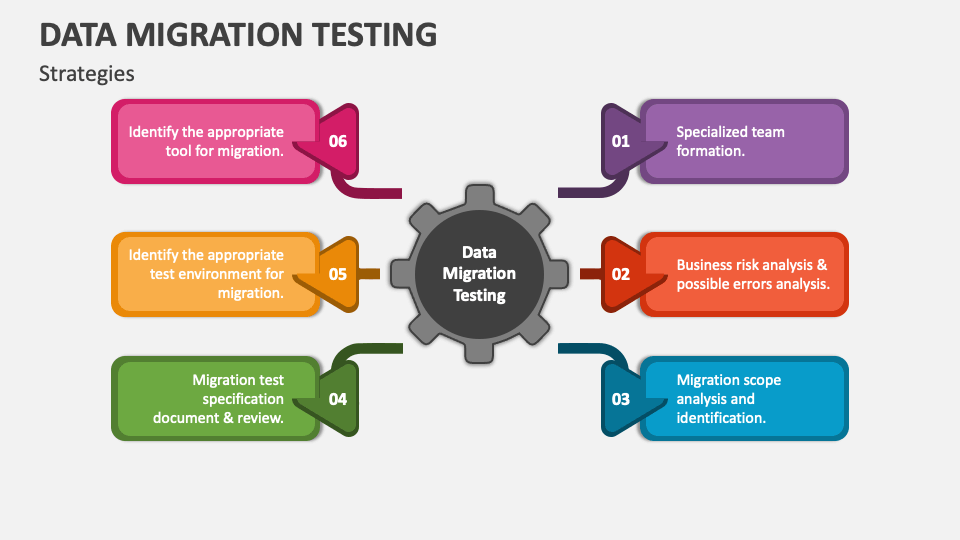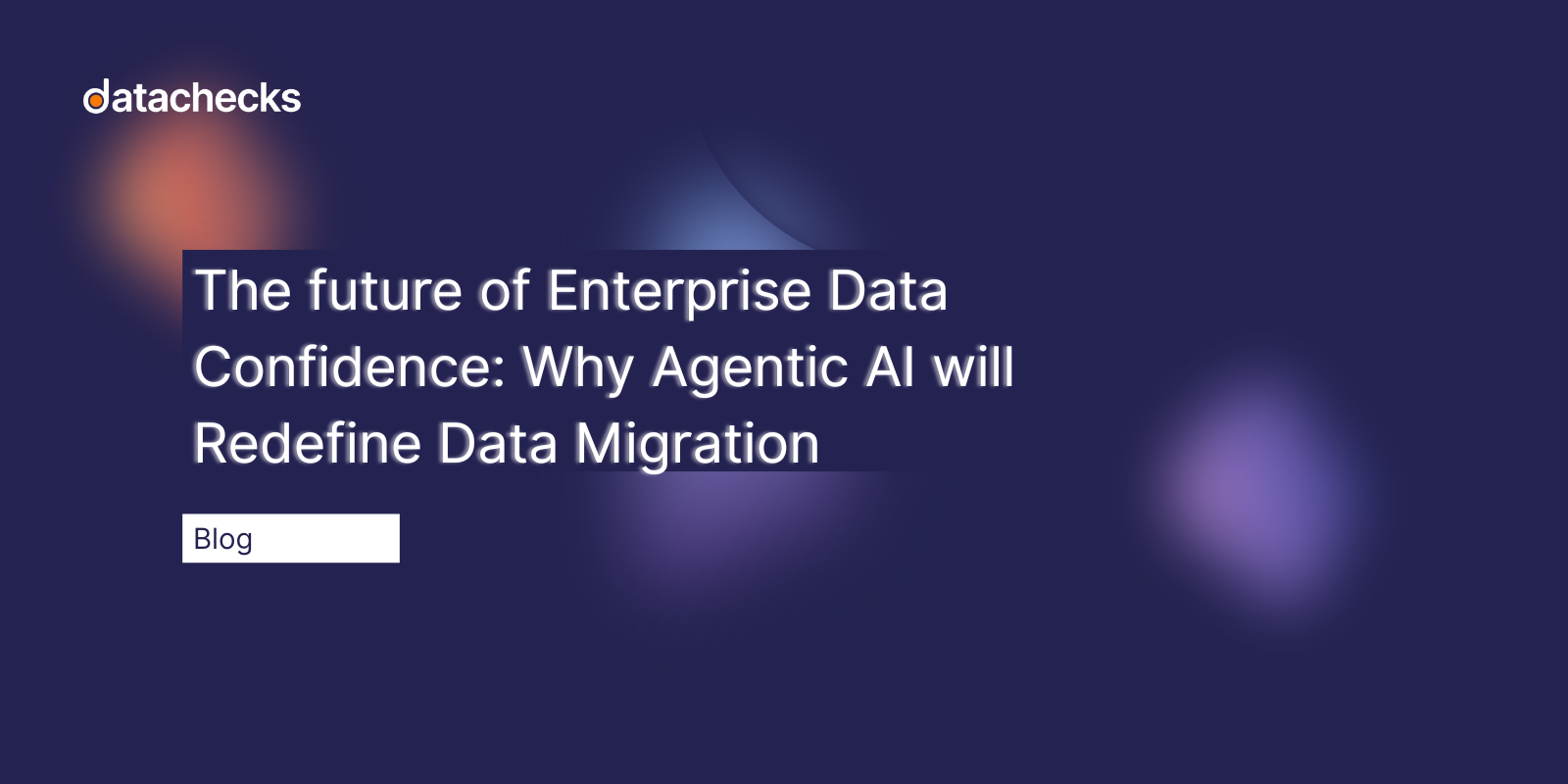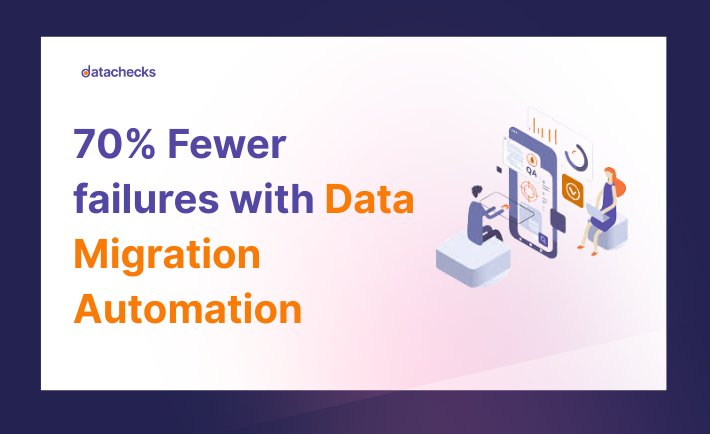The era of reactive data quality is ending. Welcome to autonomous data assurance.
67% of organizations don’t trust their data for decisions—up from 55% in 2023. In a world where AI and strategy depend on data, this trust gap is more than inefficiency—it’s a threat to competitiveness.
Traditional Data Migration—manual, reactive, rule-based—cannot keep up with modern data scale. Incremental fixes won’t cut it. Enterprises need a fundamental shift in approach.

The Data Confidence Crisis
By 2025, daily global data creation will hit 463 exabytes. Yet, 64% of organizations cited data quality as their top challenge in 2024 (vs. 50% in 2023).
The stakes are high:
- $4.88M average cost of a data breach in 2024.
- 83% of data migrations fail or run over budget (30% cost overruns, 41% time overruns).
The core issue isn’t tech—it’s reliance on reactive, manual Data Migration. Human experts can’t anticipate every failure mode.
Enter Agentic AI: A Paradigm Shift
Agentic AI isn’t scripts or copilots. It’s autonomy—systems that adapt, decide, and improve without human micromanagement. Think digital employees, not tools.
Adoption is accelerating: 25% of enterprises will pilot agentic AI in 2025, doubling to 50% by 2027.
This means moving from reactive fixes to proactive systems that understand data context, predict issues, and self-correct.
Data Migration, Reinvented
Traditional migration = detect-and-correct. Teams build scripts, reconcile by hand, and miss edge cases until production.
Agentic AI flips the model. It:
- Learns from past migrations
- Autonomously generates test scenarios
- Performs real-time reconciliation with confidence scoring
Executive Guide to Data Migration – deeper strategy insights.
The Economic Imperative
49% of organizations lack tools to automate data quality. The result: ballooning costs and risks.
Data teams spend 60–80% of time on manual checks—millions in wasted effort. Agentic AI cuts this by automating not just execution, but decision-making.
It also reduces risk by identifying blind spots humans miss and resolving issues before they escalate.
Beyond Automation: Cognitive Partnership
Conventional automation executes human-designed rules. Agentic AI learns context, adapts, and aligns QA decisions with enterprise goals.
Data Migration Needs To Move Beyond Scripts and SQL.
Instead of retrospective validation, agentic AI predicts issues, generates test data, and adapts validation in real time.
Competitive Advantage Through Confidence
Autonomous Data Migration unlocks:
- Faster innovation (no validation bottlenecks)
- Risk mitigation (comprehensive testing, proactive fixes)
- Workforce optimization (freeing talent from manual tasks)
The self-improving nature of agentic systems compounds ROI over time.
The Tech Foundation
Advanced AI models now provide reasoning strong enough for agentic Data Migration
Core enablers:
- Natural language understanding (business rules)
- Pattern recognition (anomalies)
- Predictive modeling (anticipate quality issues)
- Autonomous decision-making (corrective actions)
Enterprises need true agentic platforms—built for autonomy, not retrofitted automation tools.
Implementation Playbook
Start small. Pilot agentic in data migrations—where failures are common, and benefits are immediate.
Focus on platforms that ensure:
- Transparent decision-making
- Full auditability
- Seamless integration with existing infrastructure
Measure both operational gains (speed, defect detection, cost savings) and strategic outcomes (faster data initiatives, higher trust, stronger transformation capability).
The Future of Data Confidence
Agentic AI is the foundation of autonomous, self-healing data systems. The payoff: real-time data confidence, predictive resolution, and adaptive optimization.
The early-adopter window is closing fast. Those who move now will set the competitive standard.
The choice: lead the agentic AI shift—or follow behind.



.svg)







